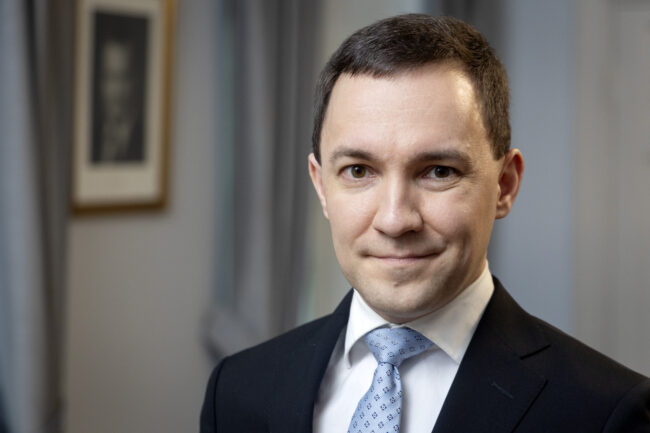Europe is currently facing unprecedented challenges due to Russia’s attack on Ukraine, increasing international tensions, the rise of geoeconomics, and a new kind of polarization. The competition for raw materials, infrastructure, and technologies is intensifying, while the energy crisis and inflation are affecting people’s daily lives. These are challenges that Finland cannot tackle alone. We need Europe, writes EU Parliamentarian and National Coalition Party candidate Henna Virkkunen in her blog.
The June European elections will emphasize strengthening Europe’s competitiveness, economy, and security. Strengthening competitiveness also involves the green transition, but it must be implemented correctly. In the upcoming EU term, the focus should be on sensible implementation, reducing excessive regulation, and ensuring both the economic sustainability of the transition and social justice.
Challenges caused by climate change, sustainable use of natural resources, and technological breakthroughs are increasingly being addressed in cities. Without the active role of cities, the EU will not achieve its climate and energy goals. Cities are also crucial for improving competitiveness, as most of the important ideas for the future are generated in urban environments.
By 2050, it is estimated that about 80 percent of EU residents will live in cities.
Urbanization is one of the global megatrends. Already, more than half of the world’s population lives in cities. This is also true for Europe—by 2050, it is estimated that about 80 percent of EU residents will live in cities.
In Finland, cities are pioneers in many areas. According to the European Commission, Uusimaa is the second most innovative region in Europe after Copenhagen: 40 percent of Finland’s GDP is produced in Uusimaa, and 50 percent of the country’s R&D investments are made there. Finland also needs national leaders who can compete, for example, in attracting investments and skilled labor compared to European peer regions. Uusimaa has succeeded well in this regard.
In the EU, cities are organized in different ways depending on each member country’s governance system. Similarly, the representation of cities in Brussels does not follow a single common pattern. In EU decision-making, regions and cities are represented in the Committee of the Regions, where Finland has nine members. The members of the Committee of the Regions and the 15 Finnish MEPs elected in June also represent the interests of Finnish cities.
In EU decision-making, regions and cities are represented in the Committee of the Regions.
Growing urban areas play a crucial role in the competitiveness of the entire country. Finnish cities do not compete with each other but with other Nordic and European urban areas. The competition is for investments, jobs, and skilled labor. Initiatives concerning the green transition, such as energy efficiency in construction and housing and transportation initiatives, are important for all European cities.
In the new geopolitical situation, strengthening EU and NATO partnerships will also be a central task for future members of the European Parliament. To work effectively on these issues, it is important that the elected MEPs sit on the committees that address these topics.
The potential expansion of the EU and the ongoing war in Ukraine affect the EU’s economy. Currently, over half of EU funding is directed towards cohesion and agricultural subsidies. In these areas, Finland and the cities of the capital region are not among the top recipients. It is in the interest of Finland, cities, and all of Europe to direct additional funding in the EU towards initiatives that promote competitiveness and encourage ecosystems that enable the green and digital transitions. Finland has much to offer in this regard.
Influence in the EU is achieved through cooperation. Clear, concrete, and solution-oriented messages are key to influencing. The cities of the capital region have several roles in networks such as Eurocities, which is an advocacy organization for European cities based in Brussels. Additionally, the Helsinki EU Office in Brussels and other Finnish regional offices actively participate in the European discussion, promoting cooperation with other European cities, regions, and stakeholders. Advocacy that emphasizes cross-border cooperation is the best way to influence future EU decisions. Finns need to be visible and heard in Brussels.
This article was translated by AI and revised by a person. The original Finnish Article can be read here



